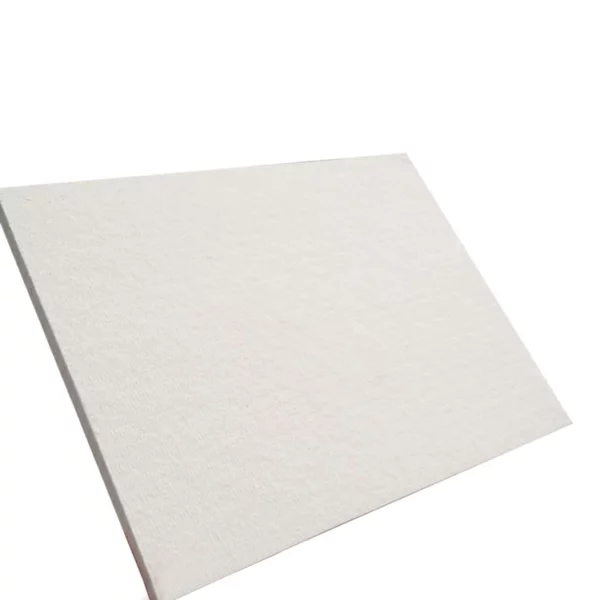Ceramic fiberboard is a high-temperature insulation material widely used in various industrial applications. Among the different types available, the 1260°C ceramic fiberboard stands out for its exceptional thermal stability, insulation properties, and versatility. This article delves into the features and applications of 1260°C ceramic fiberboard, highlighting its significance in industries requiring reliable thermal insulation at extreme temperatures.
Understanding 1260°C Ceramic Fiberboard
1. Overview of Ceramic Fiberboard
Ceramic fiberboard is a lightweight and rigid material composed of ceramic fibers and binders. It is manufactured through a process of blending, forming, drying, and firing. The resulting product exhibits excellent thermal insulation properties, making it an ideal choice for applications involving high temperatures.
2. Features of 1260°C Ceramic Fiberboard
The 1260°C ceramic fiberboard is specifically designed to withstand temperatures up to 1260°C (2300°F). It possesses several key features, including:
- Low thermal conductivity: The fiberboard’s low thermal conductivity minimizes heat transfer, providing effective insulation and energy savings.
- High temperature stability: It maintains its structural integrity and insulation properties even at extreme temperatures, ensuring long-term performance.
- Lightweight and rigid: The fiberboard’s lightweight nature facilitates easy handling and installation, while its rigidity allows for structural stability in various applications.
- Resistance to thermal shock: It can withstand rapid temperature changes without cracking or compromising its insulation capabilities.
- Chemical resistance: The fiberboard exhibits resistance to most chemicals, making it suitable for applications involving corrosive environments.
Applications of 1260°C Ceramic Fiberboard
1. Furnace and Kiln Insulation
One of the primary applications of 1260°C ceramic fiberboard is in furnace and kiln insulation. It provides excellent thermal insulation, reducing heat loss and improving energy efficiency. The fiberboard’s high-temperature stability ensures consistent and controlled heating, contributing to enhanced productivity and reduced operating costs.
2. Heat Shielding and Fire Protection
Due to its exceptional thermal insulation properties, 1260°C ceramic fiberboard is utilized in heat shielding and fire protection applications. It acts as a barrier, preventing heat transfer and protecting surrounding structures and equipment from high temperatures. Industries such as steel manufacturing, foundries, and aerospace rely on this fiberboard for fireproofing and heat containment.
3. Expansion Joint Seals
The fiberboard’s flexibility and resistance to thermal shock make it suitable for expansion joint seals. It can withstand the movement and expansion of joints caused by temperature fluctuations, ensuring a tight seal and preventing the ingress of contaminants. This application is commonly found in power plants, chemical processing facilities, and industrial piping systems.
4. Insulation for Appliances and Equipment
1260°C ceramic fiberboard is also used as insulation in various appliances and equipment. It provides thermal protection and energy efficiency in applications such as ovens, boilers, incinerators, and heat exchangers. The fiberboard’s lightweight nature allows for easy integration into different designs and configurations.
The 1260°C ceramic fiberboard is a versatile and reliable insulation material that finds extensive use in industries requiring high-temperature stability and thermal insulation. Its exceptional features, including low thermal conductivity, high temperature stability, 1260C ceramic fiber board and resistance to thermal shock, make it an ideal choice for furnace insulation, heat shielding, expansion joint seals, and appliance insulation. As industries continue to demand efficient and sustainable solutions, the 1260°C ceramic fiberboard will remain a crucial component in ensuring thermal management and safety in extreme temperature environments.
